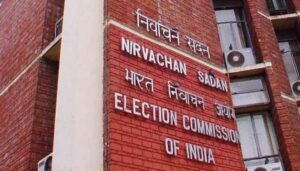
Patna: Women-led self-help groups known as Jeevika didis were praised as the drivers of change in Bihar during a day-long conference on the state’s development held at the Adhiveshan Bhawan in Patna on Saturday. Organised jointly by the Indian Institute of Public Administration and the Bihar Rural Livelihoods Promotion Society (Jeevika), the event brought together Union and state ministers who commended the transformative role women are playing across sectors.
Union Panchayati Raj, Fisheries and Animal Husbandry Minister Lalan Singh lauded the efforts of over 11 lakh women associated with Jeevika groups, calling their contribution instrumental in realising Chief Minister Nitish Kumar’s vision for Bihar. “Jeevika has become a symbol of women empowerment. From enforcing prohibition to driving self-employment, the sisters are reshaping the state,” Singh said.
He highlighted the Bihar government’s provision of reservation for women across sectors and emphasised the importance of girl-child education in enabling access to government schemes. He also pointed to women’s growing role in fisheries and other industries as evidence of their expanding contribution to Bihar’s economy.
Union Minister of State (Independent Charge) Jitendra Singh said India had undergone a dramatic transformation under Prime Minister Narendra Modi’s leadership over the last decade, with women playing a central role. “Today, around 3 crore women have become Lakhpati Didis, building enterprises and leading in agriculture, livestock, and non-farm activities,” he said, adding that Bihar’s group model could now serve as an example for other states.
Jitendra Singh also cited the increasing presence of women in science and technology, noting that women now lead major ISRO projects. “India cannot become a developed nation without empowering its women. Bihar is already showing the way,” he said.
State Rural Development Minister Shravan Kumar echoed the sentiment, calling the Jeevika movement a turning point since 2005. “From operating Didi Ki Rasoi in hospitals and schools to contributing through Saras Melas and Rural Marts, Jeevika sisters are creating economic opportunities and strengthening grassroots governance,” he said. He also announced plans to set up sewing training and production centres across all blocks in the state to supply uniforms to Anganwadi and school children.
Union Textiles Minister Giriraj Singh said Bihar’s progress, under the dual leadership of Nitish Kumar and the central government, has become a national model. He credited schemes such as the Ujjwala Yojana, Awas Yojana, and Ayushman Bharat for giving dignity and financial security to women.
Singh criticised previous administrations for neglecting women’s welfare. “Earlier, there were no groups, no women-centric policies. Today, empowered women are driving India’s rural economy,” he said. He called for scaling up initiatives like women dairy cooperatives, training centres, and Jeevika Bank.
The event also saw the release of a book published jointly by Jeevika and the Indian Institute of Public Administration, and the launch of the Jeevika e-learning portal. The vote of thanks was delivered by Jeevika CEO Himanshu Sharma.
Speakers repeatedly emphasised that the Jeevika model, rooted in grassroots empowerment and financial inclusion, could be key to Bihar’s and India’s journey towards becoming a developed nation by 2047.





